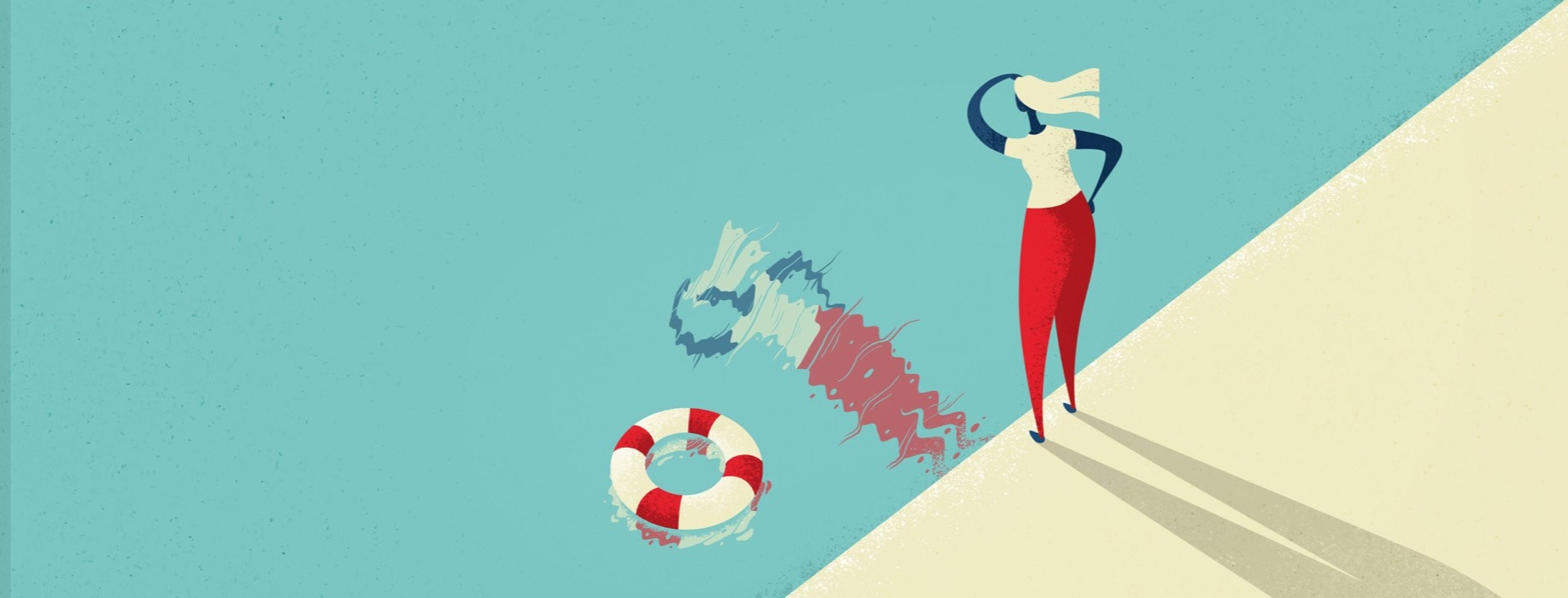Can I Call Myself a Survivor?
When we hear the word cancer, there are certain images that tend to pop up in our heads. We picture a balding patient with dark circles under her eyes and sallow skin. We picture her propped up in a chair with a port in her chest, getting chemotherapy for weeks on end. We picture her nauseated, weak, and vomiting. For many of us, that's what our cancer experience looks like.
But when I was diagnosed with bladder cancer in January 2017, I realized that cancer is as varied an experience as the person having it.
My experience
My cancer had virtually no symptoms – just pale, pink urine that was so light I wasn't even sure if I was really seeing what I thought I was seeing.
My diagnosis was pretty straightforward. I got an ultrasound, which confirmed a mass on my bladder, followed by a cystoscopy that detected the tumor up close, followed by a biopsy, that cut the cancer out of my bladder.
And the recovery was rough at times, consisting of painful bladder spasms, fatigue from the surgery, and a catheter bag affixed to my leg for three whole weeks. The experience as a whole was terrifying at times – but in the span of a month, I went from four cancerous tumors on my bladder to completely cancer-free.
Living with the aftermath
It's for this reason that I tend to shy away when people ask, astonished, if it's true that I had cancer. Well, yeah, I say, but not, like, cancer-cancer. It didn't look like it does on TV. It didn't look like a close family member's cancer experience, with seventeen grueling rounds of chemotherapy, followed by surgery and radiation therapies.
Did that really happen? I asked my husband, about a year after my diagnosis. From start to finish, the experience was so fast it's easy to forget most days that I had ever had cancer at all. My scans – first every three months, then every six months – have come back clean, every time, for eighteen months now.
“Surviving” looks different for everyone
I accept that at one point I had cancer in my bladder. But I tend to shy away from militaristic language like battle or survivor. It didn't feel like a battle. It felt like a quick, nauseating trip down a very steep roller coaster, full of peaks and valleys, followed by an abrupt stop. Because my cancer experience didn't feel like what we see in the movies, doesn't follow the cultural lexicon that we so often use to describe patient's experiences with cancer, most of the time I don't feel like I really had cancer at all.
In my experience, I don't feel like I survived the cancer itself. But I do feel like a survivor of the experience of cancer – the sheer terror after the diagnosis, the panic attacks, the hours crying and wondering whether my kids would grow up without a parent. The experience may have been short, but it was fraught, and I'm a different person because of it. I'm more conscious of my body and my health. I'm more gentle with myself and others.

Join the conversation